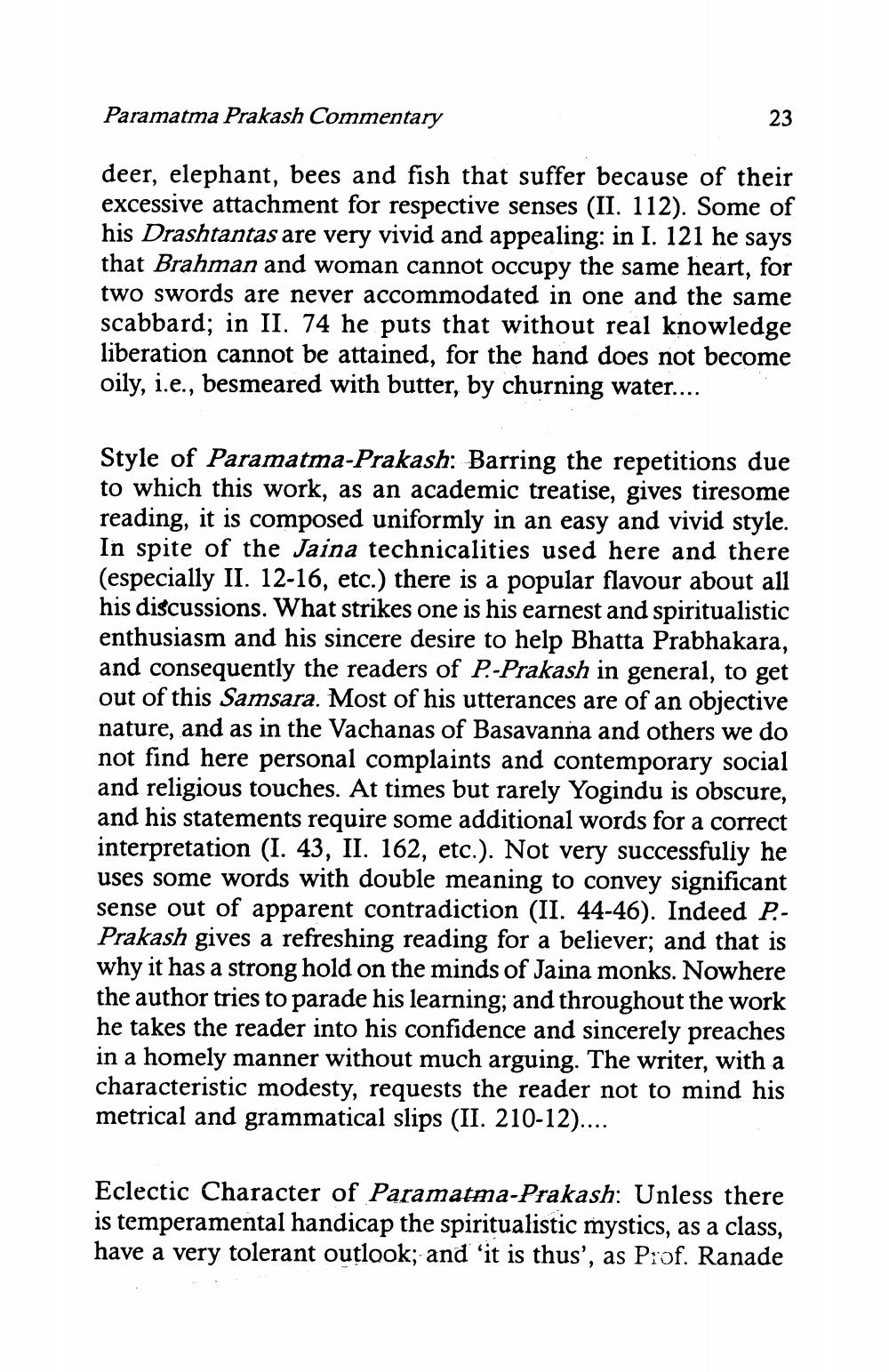________________
Paramatma Prakash Commentary
23
deer, elephant, bees and fish that suffer because of their excessive attachment for respective senses (II. 112). Some of his Drashtantas are very vivid and appealing: in I. 121 he says that Brahman and woman cannot occupy the same heart, for two swords are never accommodated in one and the same scabbard; in II. 74 he puts that without real knowledge liberation cannot be attained, for the hand does not become oily, i.e., besmeared with butter, by churning water....
Style of Paramatma-Prakash: Barring the repetitions due to which this work, as an academic treatise, gives tiresome reading, it is composed uniformly in an easy and vivid style. In spite of the Jaina technicalities used here and there (especially II. 12-16, etc.) there is a popular flavour about all his discussions. What strikes one is his earnest and spiritualistic enthusiasm and his sincere desire to help Bhatta Prabhakara, and consequently the readers of P.-Prakash in general, to get out of this Samsara. Most of his utterances are of an objective nature, and as in the Vachanas of Basavanna and others we do not find here personal complaints and contemporary social and religious touches. At times but rarely Yogindu is obscure, and his statements require some additional words for a correct interpretation (I. 43, II. 162, etc.). Not very successfully he uses some words with double meaning to convey significant sense out of apparent contradiction (II. 44-46). Indeed P.Prakash gives a refreshing reading for a believer; and that is why it has a strong hold on the minds of Jaina monks. Nowhere the author tries to parade his learning; and throughout the work he takes the reader into his confidence and sincerely preaches in a homely manner without much arguing. The writer, with a characteristic modesty, requests the reader not to mind his metrical and grammatical slips (II. 210-12)....
Eclectic Character of Paramatma-Prakash: Unless there is temperamental handicap the spiritualistic mystics, as a class, have a very tolerant outlook; and it is thus', as Prof. Ranade




